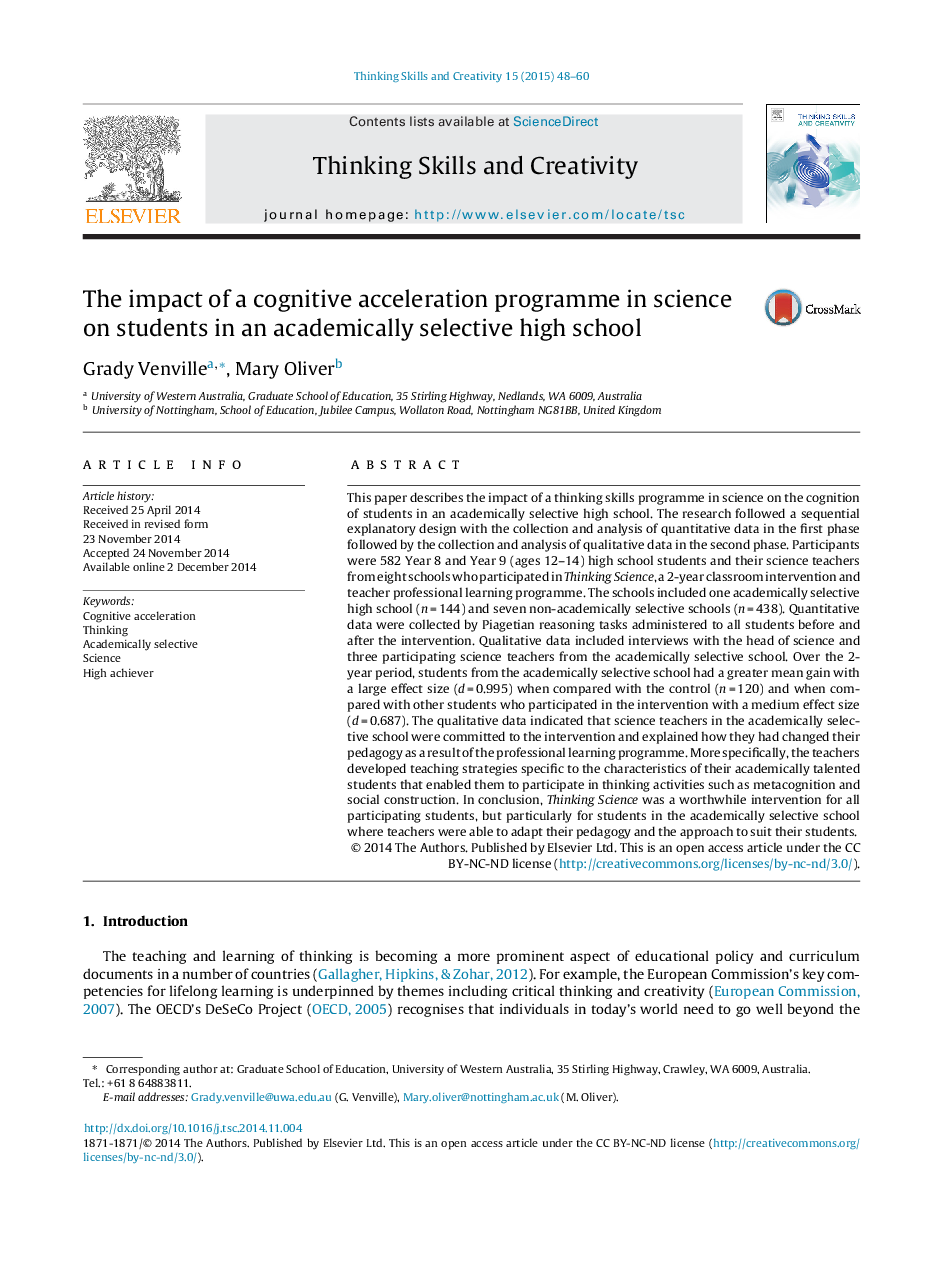| Article ID | Journal | Published Year | Pages | File Type |
|---|---|---|---|---|
| 6852040 | Thinking Skills and Creativity | 2015 | 13 Pages |
Abstract
This paper describes the impact of a thinking skills programme in science on the cognition of students in an academically selective high school. The research followed a sequential explanatory design with the collection and analysis of quantitative data in the first phase followed by the collection and analysis of qualitative data in the second phase. Participants were 582 Year 8 and Year 9 (ages 12-14) high school students and their science teachers from eight schools who participated in Thinking Science, a 2-year classroom intervention and teacher professional learning programme. The schools included one academically selective high school (n = 144) and seven non-academically selective schools (n = 438). Quantitative data were collected by Piagetian reasoning tasks administered to all students before and after the intervention. Qualitative data included interviews with the head of science and three participating science teachers from the academically selective school. Over the 2-year period, students from the academically selective school had a greater mean gain with a large effect size (d = 0.995) when compared with the control (n = 120) and when compared with other students who participated in the intervention with a medium effect size (d = 0.687). The qualitative data indicated that science teachers in the academically selective school were committed to the intervention and explained how they had changed their pedagogy as a result of the professional learning programme. More specifically, the teachers developed teaching strategies specific to the characteristics of their academically talented students that enabled them to participate in thinking activities such as metacognition and social construction. In conclusion, Thinking Science was a worthwhile intervention for all participating students, but particularly for students in the academically selective school where teachers were able to adapt their pedagogy and the approach to suit their students.
Related Topics
Social Sciences and Humanities
Psychology
Developmental and Educational Psychology
Authors
Grady Venville, Mary Oliver,
